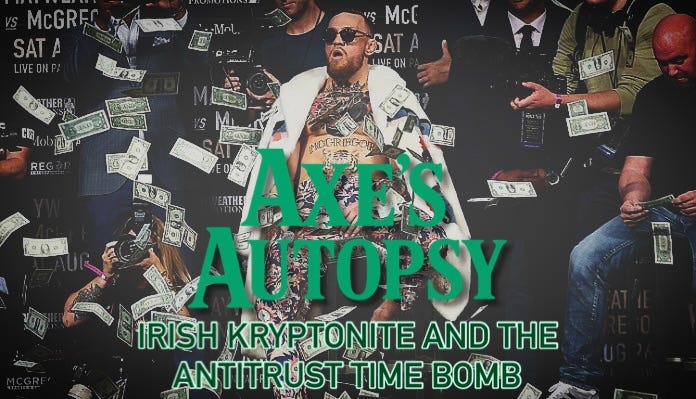Irish Kryptonite and the Antitrust Time Bomb
How McGregor’s 'Money Fight' Blunted the UFC’s Biggest Legal Threat
Before the Mayweather Fight: The Smothering Grip of Monopoly
By the mid-2000s, after swallowing PRIDE and other rivals, the UFC had become the uncontested empire of MMA. That dominance gave it unilateral leverage. Fighters had nowhere else to go, and pay was suppressed at historic lows.
As The Guardian reported:
“As a result, fighters’ pay failed to reflec…



